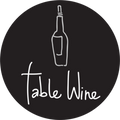Wine Buying Tips for Tough Economic Times – The year was 1998, and I had just started working at a small wine shop in the mountains of Colorado while I was enjoying my post-college sabbatical, aka finding myself. It was the late 90’s, the economy was robust and people were buying expensive wines, expensive cigars and other expensive “stuff”. Fast forward to 2011 and the situation couldn’t be more different – the affluence of the 90’s has been replaced with a more thoughtful and careful wine buying public. I’ve got good news for you all – we live in a golden age of wine and great values abound. Here are some surefire ways to get maximum bang for buck when buying wine in a trying economy.
Let’s start with the premise that you should be paying for what’s in the bottle and not what’s on it! Be extremely cautious about buying wines with brightly colored labels and/or those with some sort of small creature on them – in the trade, we call these “critter labels”. There are exceptions, but many of these wines are made in facilities that look more like oil refineries than wineries, and the company behind them has spent a lot more money on the label and the marketing and advertising campaign than they have on the actual fermented grape juice that goes into the bottle. Good wine is made with good fruit, not mediocre fruit treated with a variety of chemicals and additives just as much as good wine is made in the vineyard and not a laboratory.
Another way to get the best bang for your buck is to search out wines from lesser known growing regions and/or those made with more obscure grapes. Why? Because they taste great and cost less. When was the last time you had a wine from El Dorado County, the Marcillac, Abruzzo or Alicante? These oft-undiscovered regions are often home to native and indigenous/heirloom grape varieties that few have heard of, but there’s absolutely nothing foreign or off-putting about their flavors. Be adventurous and you will be rewarded.
I’ve said it once in this column, and I’ll say it again – become friends with your local independent wine retailer. We are the ones that enjoy giving you the skinny on the wines we’ve carefully chosen for our stores. Where’s it from, who made it, how did they make it, what’s it taste like, what foods does it taste better with? These are all fair-game questions that we enjoy answering and this is the value added incentive that an independently owned wine shop offers the customer. There are eight or so of us operating in Western North Carolina, so there’s no excuse not to shop local for wine. At the end of the day, I look at my role as being a personal wine consultant to my customers. Use me! Cheers to you all and happy drinking and eating in Western North Carolina.


